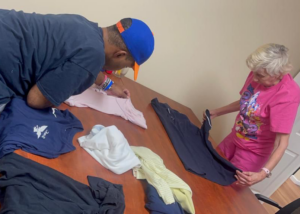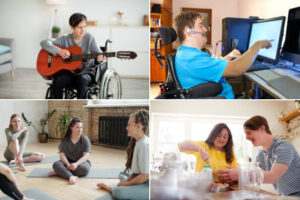Essential Life Skills to Teach Your Special Needs Adult

Shika learns to bake a cake during cooking class.
Learning life skills is critical to becoming independent adults. These life skills, however, may be more difficult to master for those with special needs owing to cognitive or developmental problems. Thus, their education or development disability care should include lessons aimed at teaching important life skills.
Here are some critical life skills that parents or caregivers may teach to foster independence and safety.
- Personal Care. Teach the value of a well-balanced diet, exercise, and healthy eating habits. Focus on creating personal hygiene habits and providing the necessary support to ensure they are practiced regularly. Discuss how to get healthcare and treat ailments such as fever, allergies, and the common cold.
- Household Tasks. All young adults should learn how to cook, make basic home repairs and maintain the heating/cooling systems and other equipment. When it comes to domestic activities, properly model techniques first, then give them a turn.

Learning to fold laundry and care for belongings
- Self-Awareness and Self-Confidence. Adults with special needs should be able to recognize their emotional, physical, and psychological needs. Focus on increasing their self-esteem. Enrolling in a day habilitation program can help build independence, self-reliance, and confidence.
- Communication. Parents or caregivers should demonstrate how to send and receive emails or texts and how to answer the phone respectfully all while respecting limitations and maintaining online privacy. The internet is a popular place for populations of all types to interact, and it's important to provide access, but with care and guidelines. Computer classes can assist both with technical and safety skills.
Gracious Services, Inc. can help learn new skills as well as practice them in solo or peer settings. Looking for developmental disabilities skills training in Somerset, Union or Essex, New Jersey? Contact us to help your loved one find independence faster.


